Link in Bio
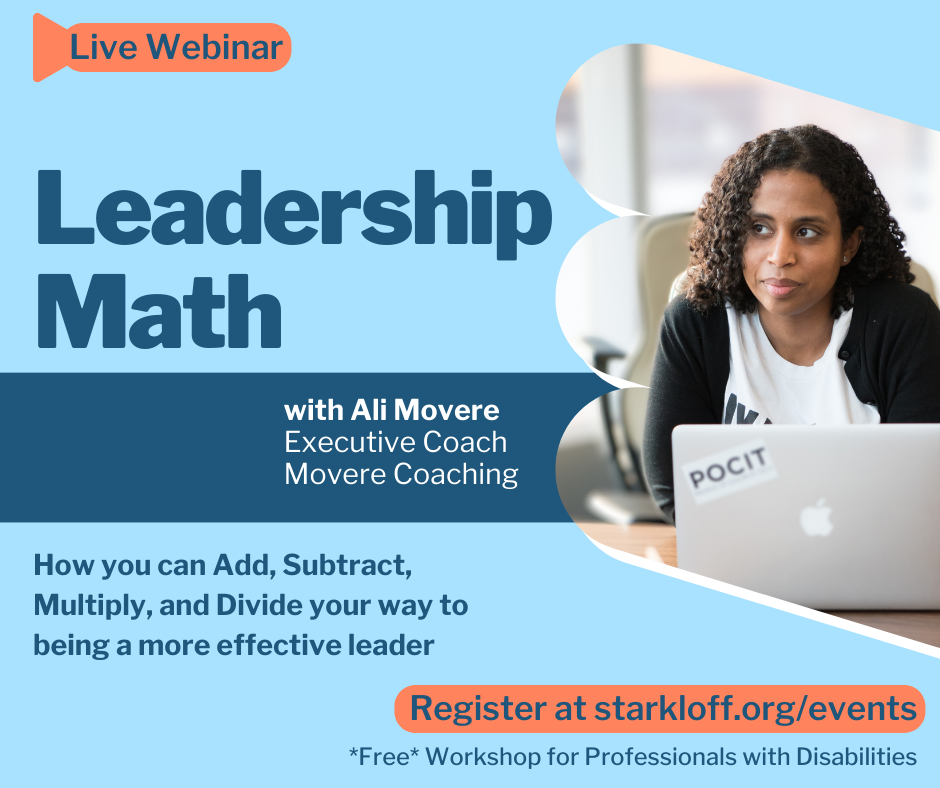
Advancements 24Q2 Series: Leadership and You
Leadership skills empowering you to do well at work and in life. Register at the link. See you there!
Session 1: Friday, April 19 at Noon CT (Zoom)
Leadership Math: How You Can Add, Subtract, Multiply, and Divide Your Way to Being a More Effective Leader
with Ali Carson | Executive Coach, Movere CoachingLearn the unique needs of your team and how to become a leader worth following through trust, compassion, stability, and hope.
Session 2: Friday, May 17 at Noon CT (Zoom)
Flipping the Script: ADHD and Leadership
with Crystal Heimbeck | Senior Business Partner, Marketing Procurement | PurinaLet’s write a new narrative on leading with neurodiversity or your disability.
Session 3: Friday, June 21 at Noon CT (Zoom)
The Watercooler
Facilitated peer discussion to put your new skills into action and build your network of disabled professional peers.Advancements is offered at no cost to participants thanks to the generous support of our funding partners to help disabled people thrive.
Registration is required.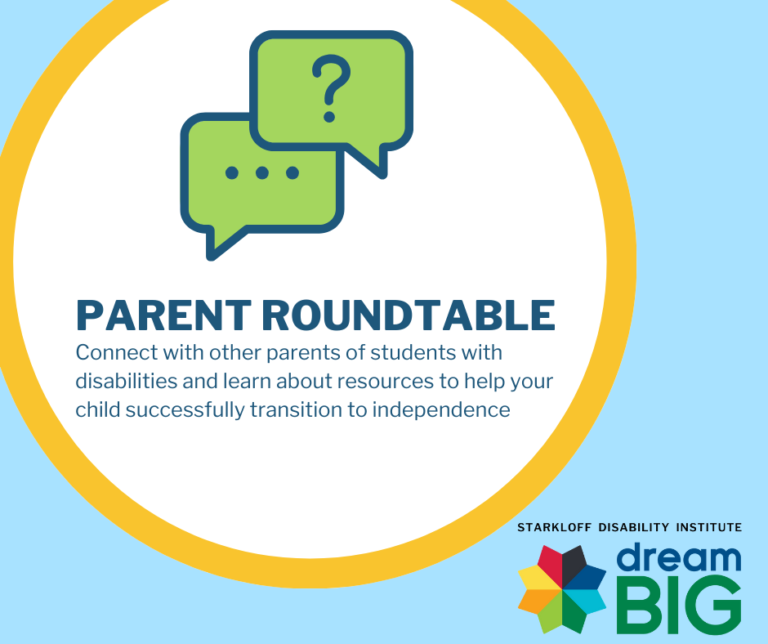
Dream Big Parent Roundtable
Last Wednesday of the month | 6pm CT | Virtual on Zoom
March 27: MO ABLE
Having a disability has a significant impact on personal finances and it can be difficult to navigate. Join us for our next Dream Big Parent Roundtable to learn about MO ABLE accounts designed to help save for the future while managing access to critical benefits.

Black History Month 2024
Black Disabled People In the Arts
Learn More About Featured Artists and Resources:
Phife Dawg and the tradition of Disability as a Name in Black Music
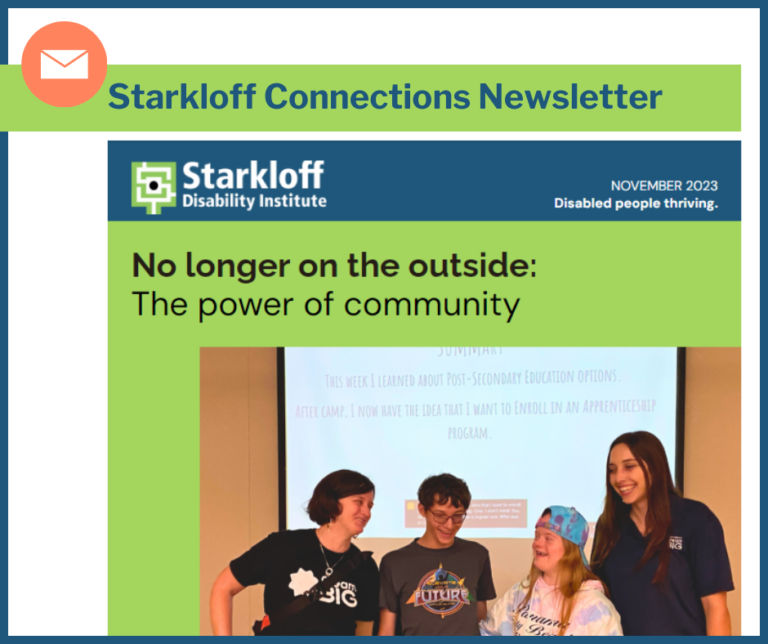
Starkloff Connections Newsletter
Read about our impact, latest updates, resources, and Disability Community news! Click on a title view each issue.
March 2024: A Win for Our Whole Community
February 2024: Dreaming Big in Middle School
January 2024: Disability Confidence
December 2023: The Purpose of a Career
November 2023: The Power of Community
October 2023: How We’re Moving the Needle on Disability Inclusion at Work
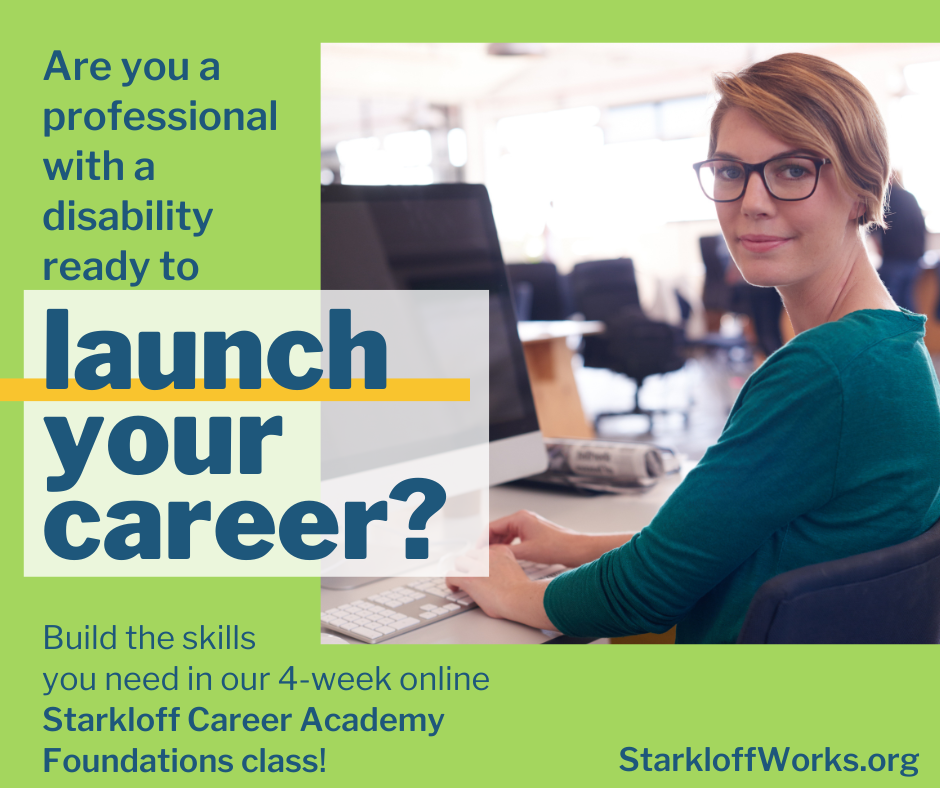
Starkloff Career Academy: Foundations
Are you launching your career? Our introductory program helps people with disabilities gain the foundational knowledge, skills, and tools they need to start their career journey.
Live, online class taught by experts in career development and disability. Over 4 weeks, you will master:
- Writing Resumes that Stand Out
- Making Unforgettable First Impressions
- Telling Your Disability Story with Confidence
- Interview Techniques to Showcase Your Skills
Tuesdays and Thursdays
10:00am – 12:00pm CT
on ZoomNext class begins April 4, 2024!
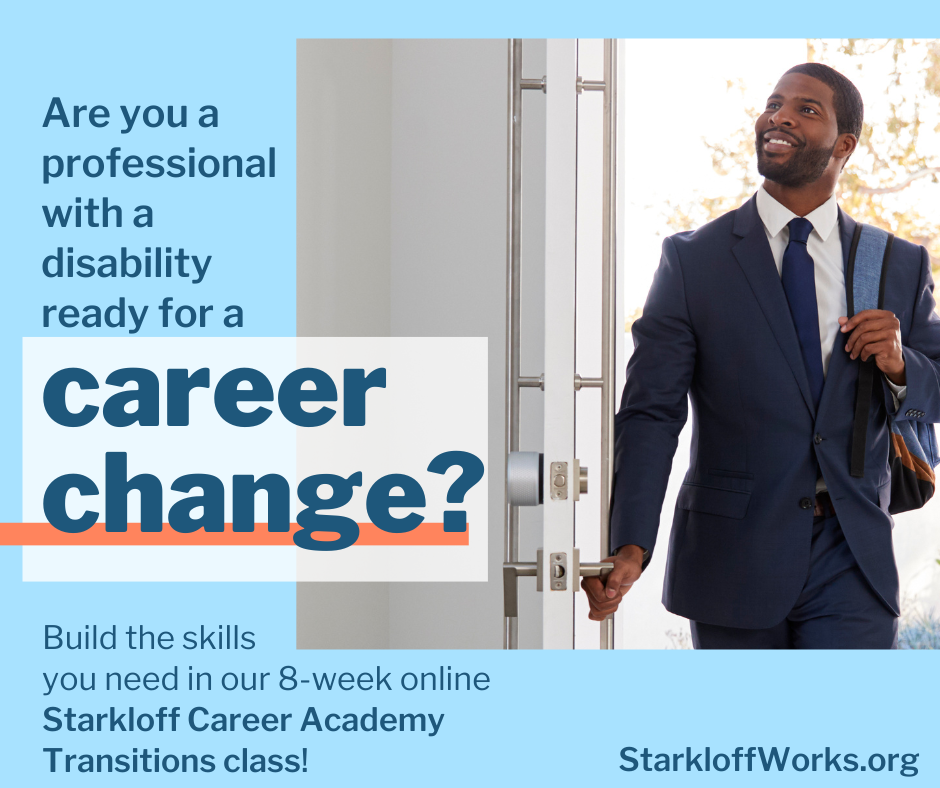
Starkloff Career Academy: Transitions
Are you a working professional ready for a career pivot? Our middle track in SCA helps people with disabilities translate their knowledge, skills, and experiences into new opportunities in new industries, specialties, and career paths.
Self-paced online learning with weekly virtual career coaching and support check-ins. experts in career development and disability. Over 8 weeks in our online classroom, you will dive deeper into:
- Matching Personal and Workplace Values
- Job Research Best Practices & Critical Thinking
- Negotiating Salaries, Raises, and Benefits
- Telling Your Disability Story with Confidence
- Interview Techniques to Showcase Your Skills
Live check-ins
Thursdays
6:30pm – 8:00pm CT
on ZoomNext class begins April 4, 2024!

Make a Gift to Power Our Work
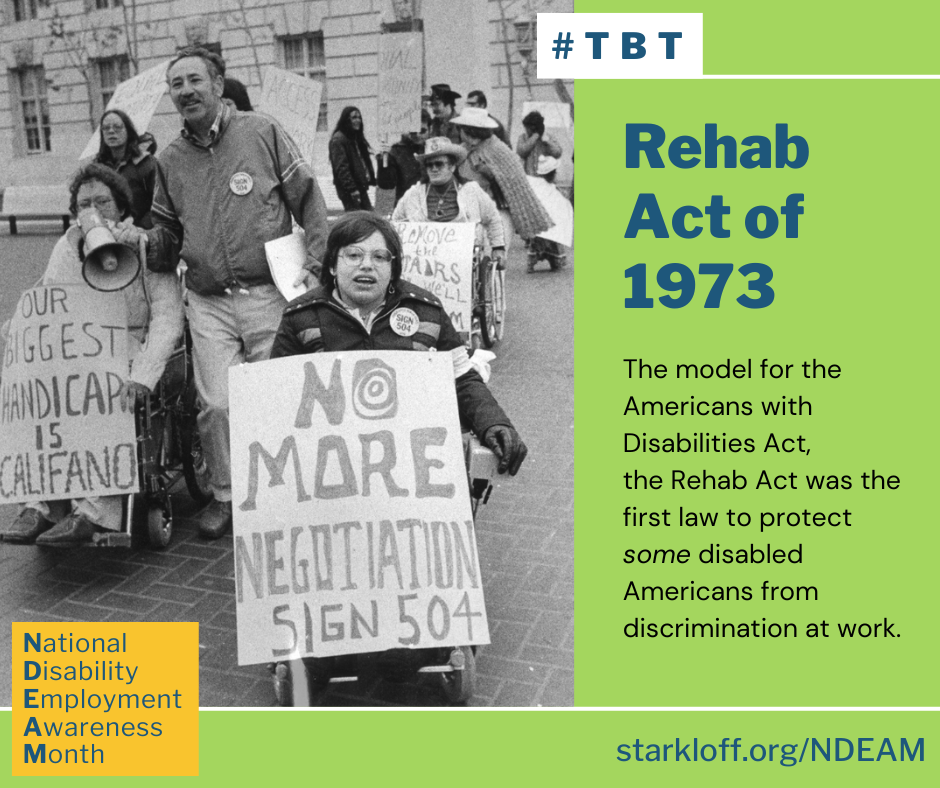
50 Years of the Rehabilitation Act of 1973
This #NationalDisabilityEmploymentAwarenessMonth we are celebrating 50 years of the Rehabilitation Act of 1973. This landmark legislation was the first time disabled people had some federal protection from discrimination. Federal workplace protections in Sections 501 and 503 went into effect quickly, but it took years of advocacy, protest, and a 29 day sit-in by disability advocates to get the regulations prohibiting discrimination in any federally funded programs in Section 504 signed into law.

